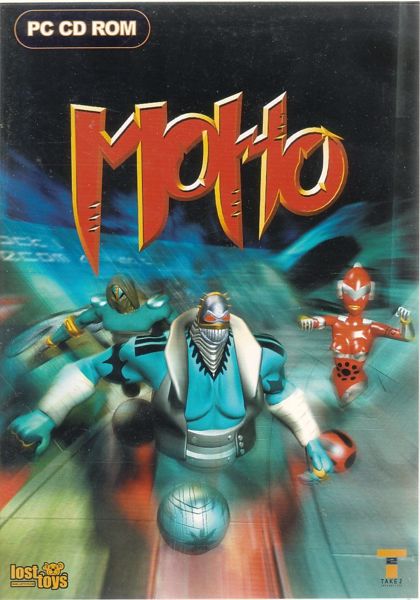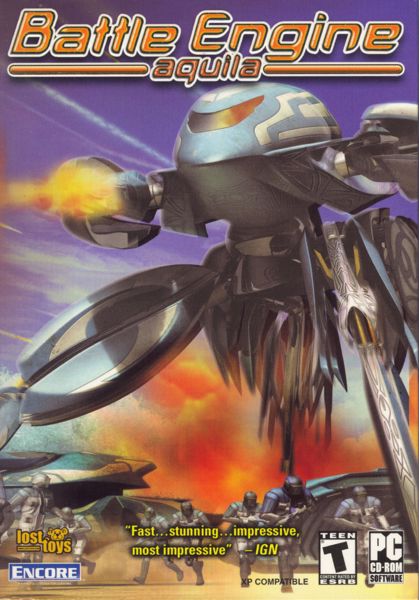Lost Toys was founded in 1999 by Glenn Corpes, Jeremy Longley
and Darran Thomas after previously working together at Bullfrog Productions. Lost
Toys was one of three game development studios, along with Lionhead Studios and
Mucky Foot, founded with the intention of reproducing Bullfrog Productions’ studio
environment, following their acquisition by Electronic Arts.
The teams first project would be Ball Breakers, also known
as MoHo. An ambitious genre-bending multiplayer action game described as “The
Wicker Man meets Marble Madness” by one reviewer. Lost Toys first game
signalled an intention to carry on the Bullfrog tradition of creating novel
game experiences.
In 2003 Lost Toys would release their second and final game, Battle Engine Aquila.
The game took place on the fictional planet Allium, a flooded planet following
the melting of its ice caps due to the greenhouse effect. Only 13 islands scattered
across the surface remain and only two civilisations of Allium’s human like
inhabitants are left. The peaceful and technological Forseti and the aggressive
Muspell. Both civilisations are at the brink of war with each other in a battle
over the remaining landmasses.
On its easiest difficulty the game provided at least 8 hours
of gameplay in campaign mode, each level presenting a new threat or dilemma for
the player to tackle with simulated beach landings, ambushes, and airborne
landing craft. The game encouraged strategic thinking, giving players the
freedom to choose their own targets rather than giving a specific objective.
Despite a very positive critical reception, Battle Engine Aquila suffered unjustly
from poor sales figures. Evidencing the disparity between its quality and its commercial
performance, IGN later ranked it as the 86th best PS2 game of all
time, ahead of 4405 other titles released during the PS2’s lifetime.
Founder of Lost Toys and Lead Designer Glenn Corpes recalled
“Lots of games claim to drop you into the middle of an ongoing war and invite
the player to swing the balance in favour of the good guys. Battle Engine Aquilla
was different because it actually did it. It dropped the player into a
simulation of a battle rather than a scripted rendition of one. Sadly only an
enlightened few appreciated this..”
Developer Showcase
Lost Toys

- Founded1999

